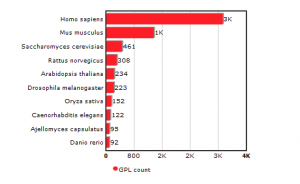
Is 1000 Genome Project an Example of Modern Day Alchemy?
For new readers, easiest way to follow us is through our twitter feed. The feed is updated, whenever we post a commentary here.
Even though alchemy got a bad name now, it used to be respectable practice for centuries. Alchemists were primarily inspired by one goal - finding a method to turn base metals into gold and silver. Why gold and silver? Because that is where the money is.
At the end, the only method to turn lead into gold was found by studying something far different from gold. During the early part of 20th century, physicists developed quantum theory by modeling hydrogen atom, a gas consisting of only one electron and one proton. If funding agencies of the era restricted physicists to study primarily gold, silver and platinum, we would not have had periodic table, semiconductors, electronic gadgets and Watson- Crick structure.

As we sift through volumes of transcriptomic data, one pattern is very clear. Researchers are generating far more data on humans than anything else. This trend makes perfect sense from a commercial point of view, because human disease is where the money lies. The 1000 genome project extends this philosophy one step further by not even sequencing transcriptomes, but genomes of hundreds of individuals.
Are we missing the big picture and looking too close to where the money is?
Genome Sequencing Isnt Predictive of Most Diseases, Study Says
Sequencing the genomes of patients to reveal what ailments might mar their futures isnt the best predictor for the most common diseases, according to a study involving thousands of identical twins.
Researchers found that most people would get negative results from having their genome sequenced for all but one of 24 identified conditions that includes heart disease, diabetes and Alzheimers. While the process can help spot many rare genetic disorders, it doesnt appear to be a good predictor of who will suffer from the majority of illnesses, the authors wrote.